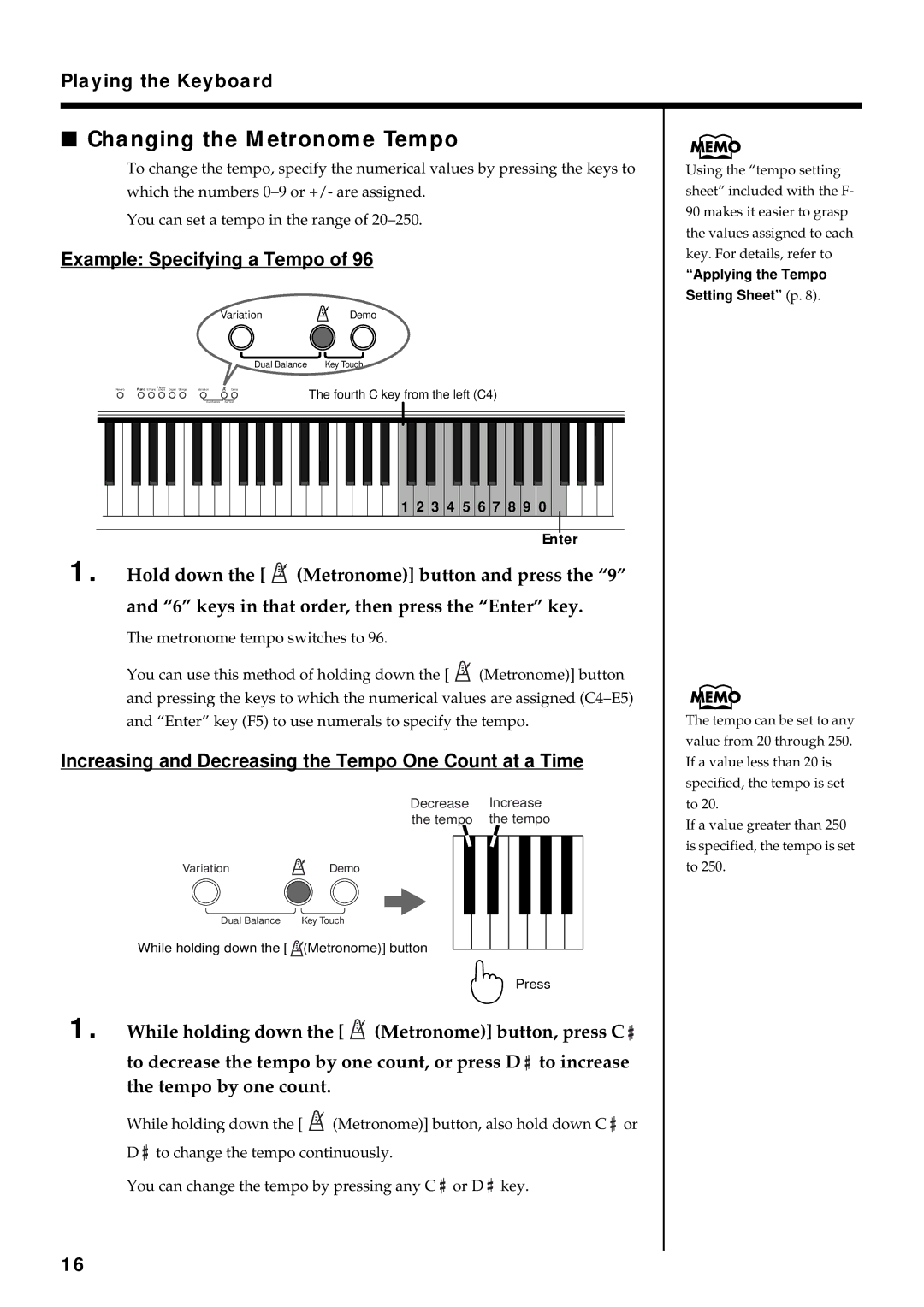
Playing the Keyboard
■Changing the Metronome Tempo
To change the tempo, specify the numerical values by pressing the keys to which the numbers
You can set a tempo in the range of
Example: Specifying a Tempo of 96
| Variation | Demo |
| Dual Balance | Key Touch |
Harpsi- |
| The fourth C key from the left (C4) |
Reverb Piano E.Piano chord Organ Strings Variation | Demo | |
|
|
Dual Balance | Key Touch | |
|
|
|
|
|
|
|
|
|
1 2 3 4 5 6 7 8 9 0
Enter
1. Hold down the [ ![]() (Metronome)] button and press the “9” and “6” keys in that order, then press the “Enter” key.
(Metronome)] button and press the “9” and “6” keys in that order, then press the “Enter” key.
The metronome tempo switches to 96.
You can use this method of holding down the [ ![]() (Metronome)] button and pressing the keys to which the numerical values are assigned
(Metronome)] button and pressing the keys to which the numerical values are assigned
Increasing and Decreasing the Tempo One Count at a Time
Decrease |
| Increase | ||
the tempo |
| the tempo | ||
|
|
|
|
|
VariationDemo
Dual Balance | Key Touch |
While holding down the [![]() (Metronome)] button
(Metronome)] button
Press
1. While holding down the [ ![]() (Metronome)] button, press C
(Metronome)] button, press C ![]() to decrease the tempo by one count, or press D
to decrease the tempo by one count, or press D ![]() to increase the tempo by one count.
to increase the tempo by one count.
While holding down the [ ![]() (Metronome)] button, also hold down C
(Metronome)] button, also hold down C ![]() or D
or D ![]() to change the tempo continuously.
to change the tempo continuously.
You can change the tempo by pressing any C ![]() or D
or D ![]() key.
key.
Using the “tempo setting sheet” included with the F- 90 makes it easier to grasp the values assigned to each key. For details, refer to
“Applying the Tempo
Setting Sheet” (p. 8).
The tempo can be set to any value from 20 through 250. If a value less than 20 is specified, the tempo is set to 20.
If a value greater than 250 is specified, the tempo is set to 250.
16
